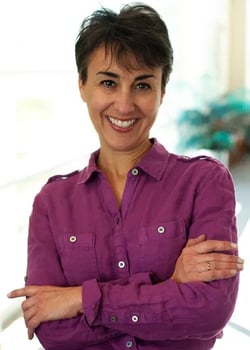A key component in treating newly diagnosed leukemia is genetic and molecular testing. With this knowledge, physicians can better determine which treatment options are best suited for patients based on genetic mutations, fusions and other biologic features.
While these tests are critical for all patients with leukemia, they are not always easily accessible, especially for patients who are uninsured or underinsured. Because of this, not all patients have access to the cutting-edge treatments available for their disease.
A new multi-organization effort funded by the University of Colorado (CU) Cancer Center focuses on narrowing the gap by creating a mechanism that allows for molecular testing in underrepresented patients on the Anschutz Medical Campus and Denver Health.
“The Office of Community Outreach and Engagement (COE) will be working with Dr. Gore’s team to develop community-engagement strategies to ensure the appropriate representation of underrepresented populations in the effort. Currently, the population of patients of diverse backgrounds may not reflect the diversity needed to properly investigate disparities in the treatment of leukemias,” says Evelinn Borrayo, PhD, Associate Director of the COE. “The CU Cancer Center’s strategic goals include reducing cancer disparities in our catchment (the State of Colorado). Locally, disadvantaged populations have significantly higher incidence and mortality from various cancers, making such disparity a priority for our cancer center.”
Targeting patients with leukemia in the Denver Metro Area
The effort, which spans four organizations including the CU Cancer Center, UCHealth, Children’s Hospital Colorado, Denver Health and Hospital Authority. It includes pediatric, adult and laboratory medicine physicians and scientists, aims to increase access in the Denver Metro Area, where many uninsured or underinsured patients are treated.
Lia Gore, MD
“We are partnering across the Anschutz Medical Campus and with our colleagues at Denver Health to be able to reach Denver Metro patients who currently do not have insurance coverage to pay for this highly specialized testing,” explains Lia Gore, MD, coordinating investigator of the effort and co-director of the CU Cancer Center’s Developmental Therapeutics Program.
With the support of the CU Cancer Center, uninsured or underinsured patients will have access to highly sophisticated molecular testing developed at Children’s Colorado that they otherwise would not. The goal is to start with 25 patients this year.
“Once the testing is complete on a given patient, the expert panel will meet to review the results and make a targeted recommendation for treatment options if one is available,” says Gore. “Patients will be followed during therapy for their outcomes and changes in therapy that may occur as a result of the recommendations.”
With the increased knowledge of leukemia, cancer care teams can determine which treatment options are best suited for the patient or if the current treatment plan may need to be modified to increase the chance of better outcomes.
“If a patient’s leukemia has an identified abnormality that could be sensitive to a targeted therapy, recommendations for access to these therapies will be made,” says Gore. “Some patients may also be eligible for newer treatments like our on-campus chimeric antigen t-cell treatments, and this potential option would also be discussed.”
Enhanced testing across Colorado
Although the effort is currently taking place in the Denver Metro Area, it is likely to be expanded across Colorado.
“If the initial approach is successful locally, then we will apply for additional funding to broaden the potentially eligible patients outside the Denver Metro Area and to more patients overall,” says Gore.
Gore and her team hope to create an approach that can be readily exported to other, farther outlying sites in the state and region with minimal modification. It could also be easily modified to patients with other primary diagnoses.




